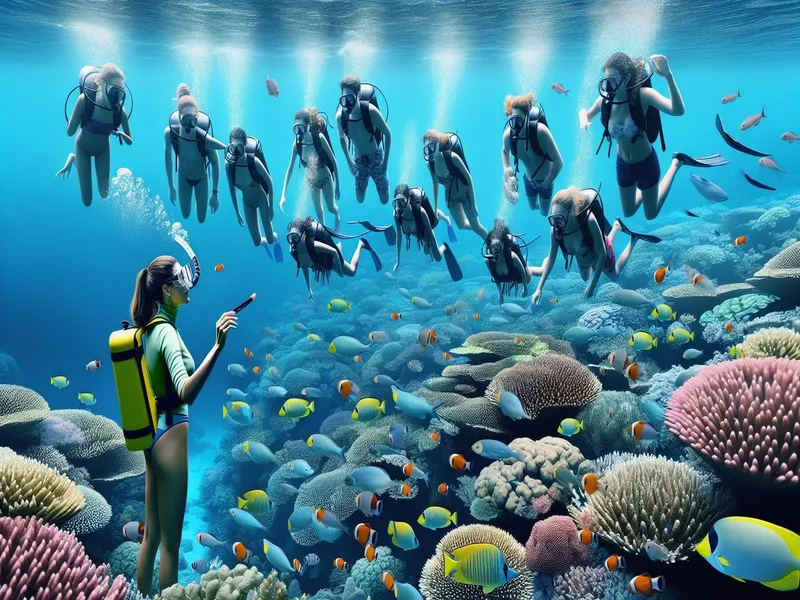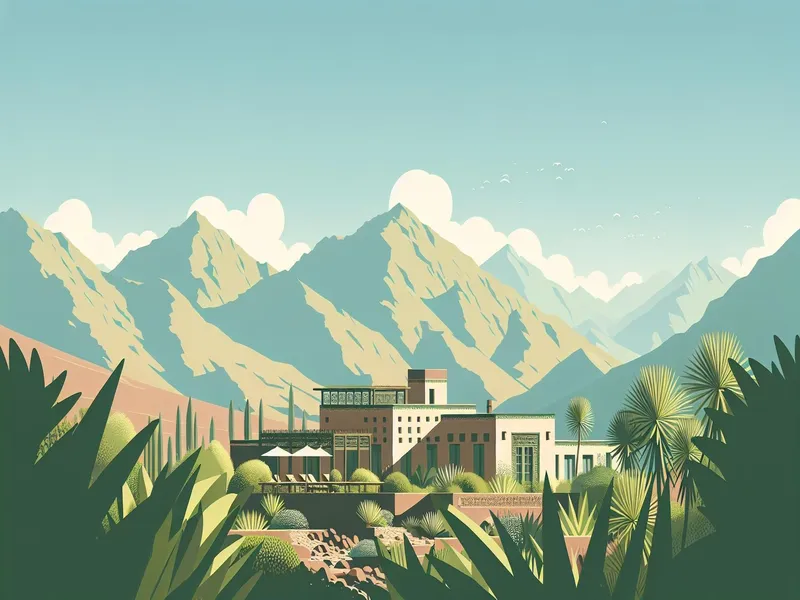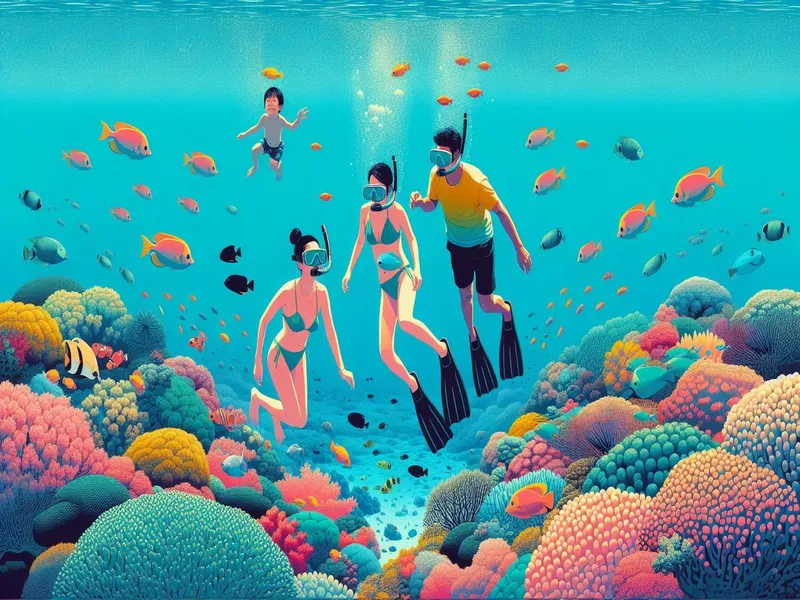
Whether you’re a student seeking hands-on learning experiences or a lifelong learner eager to expand your horizons, this region provides countless opportunities for immersive education.
Ignoring the potential of educational travel in Oceania means missing out on transformative experiences that can broaden your understanding of the world. Without these enriching journeys, you might find yourself stuck with textbook knowledge rather than real-world insights.
I’ve spent years exploring and studying various aspects of Oceania, from its ancient indigenous cultures to its vibrant marine life. My extensive travels have taught me how valuable firsthand experiences are in truly grasping the essence of this incredible part of the world.
Whether you’re an educator planning a school trip or an individual looking to enrich your personal knowledge, tailored travel activities can meet your specific needs. For more ideas on engaging travel activities, check out our comprehensive guide here.
I understand how overwhelming it can be to plan such trips, but trust me—I’m here to help you navigate through every step. Let’s begin on this journey together and unlock the full potential of educational travel in Oceania.
The Unique Appeal Of Educational Travel In Oceania
Exploring Oceania’s diverse regions isn’t just about ticking off destinations from your bucket list. It’s like opening a treasure chest, where each island has its own special gem. Imagine swimming with the vibrant fish around the Great Barrier Reef or learning traditional Maori dances in New Zealand. These experiences offer so much more than what you find in books.
Rich Cultural Heritage
Oceania is a melting pot of cultures and traditions that date back thousands of years. When you visit places like Fiji or Samoa, you get to see how ancient customs are still alive today. I remember attending a Kava ceremony in Fiji; it was fascinating to witness such an important social ritual firsthand.
- Maori Culture: Participate in a Haka dance and understand its significance.
- Aboriginal Art: Learn dot painting techniques directly from Aboriginal artists in Australia.
- Polynesian Traditions: Engage in storytelling sessions that pass down myths and legends.
Stunning Landscapes
The landscapes here are nothing short of magical. You can walk through volcanic valleys one day and relax on pristine beaches the next. For instance, hiking through New Zealand’s Tongariro Alpine Crossing feels like stepping into another world—think Mordor from “The Lord of the Rings.”
- Great Barrier Reef: Jump into one of the world’s most extensive coral reef systems.
- Uluru: Witness this massive sandstone monolith’s changing colors at sunset.
- Franz Josef Glacier: Trek across ice fields that seem straight out of an adventure movie.
Diverse Ecosystems
Oceania’s ecosystems range from rainforests to deserts, offering unique learning opportunities at every turn. You might find yourself studying marine life on Australia’s coast or observing bird species found nowhere else on Earth.
| Destination | Ecosystem Type | Unique Feature |
|---|---|---|
| Daintree Rainforest | Tropical Rainforest | Home to ancient plant species |
| Great Sandy Desert | Desert | Hosts resilient flora and fauna |
| Lord Howe Island | Marine | Contains endemic marine species |
Imagine snorkeling among coral reefs teeming with life or trekking through dense forests while spotting rare birds—it’s nature’s classroom!
Real-Life Examples
I once spent a week on Lord Howe Island studying its unique marine ecosystem for a project. Snorkeling there gave me insights into environmental conservation efforts not available through textbooks alone.
Top Destinations For Educational Travel In Oceania

Exploring Oceania for educational travel offers unforgettable experiences. Here are some top destinations to consider.
Australia: A Learning Adventure Down Under
Australia is like an enormous outdoor classroom. Imagine snorkeling at the Great Barrier Reef, where you can see vibrant coral and marine life up close. It’s not just beautiful; it’s a lesson in biodiversity and conservation. Then there’s Sydney, with its iconic Opera House and Harbor Bridge—perfect for lessons in architecture and engineering.
Melbourne’s museums, like the Melbourne Museum, offer interactive exhibits about everything from dinosaurs to Aboriginal culture. And don’t miss out on Uluru (Ayers Rock)—a sacred site that teaches about indigenous Australian history and geology.
New Zealand: A Classroom In Nature
New Zealand is nature’s playground, ideal for hands-on learning. Picture yourself hiking through the Tongariro Alpine Crossing, a volcanic world that’s both thrilling and educational. You’ll learn about geothermal activity while enjoying stunning scenery.
In Rotorua, geysers and hot springs provide real-world examples of geothermal energy—a topic that’s usually confined to textbooks. Wellington’s Te Papa Museum showcases Maori culture with artifacts that tell stories better than any book could.
Queenstown, known as the adventure capital, isn’t just for thrill-seekers; it’s also great for studying ecosystems through activities like zip-lining or river rafting.
Fiji: Discovering Cultural Richness
Fiji’s warm hospitality makes it a fantastic destination for cultural education. When I stayed in a Fijian village, I participated in traditional ceremonies that taught me more about their way of life than any documentary ever could.
Visit Suva’s Fiji Museum to see ancient artifacts dating back thousands of years—perfect for history buffs. In Nadi, join a kava ceremony or watch Meke dances to experience local traditions firsthand.
For marine biology enthusiasts, snorkeling around the Yasawa Islands reveals diverse sea life that’s perfect for studying marine ecosystems up close.
Key Benefits Of Educational Travel In Oceania

Diving into educational travel in Oceania, you’ll discover a treasure trove of benefits. Whether you’re trekking through lush rainforests or soaking up local cultures, there’s something transformative about this experience.
Enhancing Environmental Awareness
Exploring Oceania’s diverse ecosystems opens your eyes to environmental issues in a way textbooks just can’t match. I remember snorkeling at the Great Barrier Reef and seeing firsthand how coral bleaching affects marine life. You start to care more about conservation when you’ve swum alongside vibrant fish and seen the damage pollution causes. Imagine hiking through New Zealand’s Tongariro Alpine Crossing—feeling the crisp mountain air and learning about volcanic activity right where it happens makes geology come alive.
Cultural Immersion And Understanding
Oceania is a melting pot of cultures, each with its own unique customs and traditions. When I spent time in Fiji, participating in a traditional kava ceremony helped me understand Fijian community values better than any book could. Picture yourself learning Maori dances in New Zealand; you not only see but feel their history and stories unfold before you. This kind of cultural immersion fosters empathy and broadens your worldview.
Practical Learning Experiences
Nothing beats hands-on learning for grasping new concepts. During my week on Lord Howe Island studying its marine ecosystem, I realized how different practical experiences are from classroom lessons. You’ll find that tracking wildlife or engaging in local farming activities teaches you skills that stick with you longer than lectures ever could. Imagine visiting Sydney’s iconic landmarks—not just reading about architecture but walking through it, touching it, living it—that’s what makes education truly effective.
Educational travel in Oceania isn’t just informative; it’s an adventure that leaves lasting impressions on your mind and heart.
Planning Your Educational Travel In Oceania
Planning an educational trip to Oceania? I’ve got some tips and tricks to make your journey both enlightening and hassle-free. Let’s jump into the essentials.
Choosing The Right Programs
Picking the right program can be a game-changer. You’ll want something that aligns with your interests, whether it’s marine biology, indigenous cultures, or environmental conservation.
- Research Accredited Programs: Look for programs recognized by reputable institutions.
- Check Reviews: See what past participants have to say. Real experiences often reveal a lot.
- Consider Duration and Cost: Ensure the program fits within your budget and time constraints.
For example, when I chose a week-long marine biology course on Lord Howe Island, it was because of glowing reviews and its focus on hands-on activities like snorkeling and lab work.
Safety And Logistics
Safety first! Traveling in Oceania is generally safe but there are some key things to remember.
- Travel Insurance: Always get comprehensive travel insurance. It covers unexpected events like medical emergencies or trip cancellations.
- Local Healthcare Facilities: Know where the nearest hospitals or clinics are located in case of emergencies.
Logistics-wise, plan your transport ahead:
- Domestic Flights vs Ferries: Depending on which islands you’re hopping between, consider the most efficient mode of transport.
- Accommodation Close To Activities: Staying near your main activities saves time and makes logistics smoother.
When I traveled through New Zealand’s South Island, booking accommodations close to hiking trails made early morning treks much easier. Plus, it let me enjoy more spontaneous adventures without worrying about long commutes.
Testimonials And Success Stories
From Classroom To Coral Reefs: A School’s Journey
I remember talking to Mr. Smith, a high school teacher from California, who took his class on an educational trip to the Great Barrier Reef. He shared how students transformed from textbook learners into passionate marine biologists overnight. “Seeing the kids’ faces light up as they swam with clownfish was priceless,” he told me. The hands-on experience made concepts like coral bleaching and marine ecosystems come alive.
Gaining New Perspectives: Student Reflections
Emma, a college student I met in New Zealand, couldn’t stop raving about her time spent learning Maori culture. She said, “The traditional haka dance we performed taught us more about community and history than any lecture ever could.” These immersive experiences gave Emma and her peers new perspectives that textbooks alone couldn’t provide.
Bridging Cultures: A Family’s Adventure
When my friend Sarah took her family to Fiji, she wasn’t expecting it to be so educational. Her kids participated in a local kava ceremony (a traditional drink made from the kava plant) and learned about Fijian customs first-hand. Sarah said, “It was amazing to see my children engage with another culture so deeply; it’s something they’ll never forget.”
Professional Development On The Road
Dr. Lee, an environmental scientist I know, joined a research expedition in Australia’s Daintree Rainforest. She shared how this trip enhanced her professional skills while providing invaluable fieldwork experience. “I felt like Indiana Jones,” she joked, “discovering new species and understanding their roles within the ecosystem.”
Impactful Programs That Make A Difference
Some programs stand out for their impactful approach:
- Earthwatch Institute offers conservation-focused trips where volunteers assist scientists.
- GVI (Global Vision International) provides internships in marine biology across Oceania.
These organizations create life-changing opportunities by combining education with adventure.
Hypothetical Scenario: Imagine This…
Picture this—you’re snorkeling at the Great Barrier Reef when you spot a sea turtle gliding gracefully through the water. Suddenly, all those boring diagrams from your biology class make sense! Real-life encounters have a way of cementing knowledge that no classroom can match.
By sharing these stories and examples, I hope you’re inspired to consider educational travel in Oceania as more than just a vacation—it’s an opportunity for lifelong learning and unforgettable memories.
Summary
Educational travel in Oceania offers unparalleled opportunities for growth and learning. By immersing yourself in its cultures, landscapes, and ecosystems you’ll gain insights that textbooks simply can’t provide. Whether you’re snorkeling at the Great Barrier Reef or participating in a traditional Maori dance these experiences will leave lasting impressions.
Embrace the transformative potential of educational travel by exploring Oceania’s rich heritage and diverse environments. With careful planning and an open mind you’ll not only enhance your knowledge but also create unforgettable memories. Jump into this adventure and let the wonders of Oceania broaden your horizons.